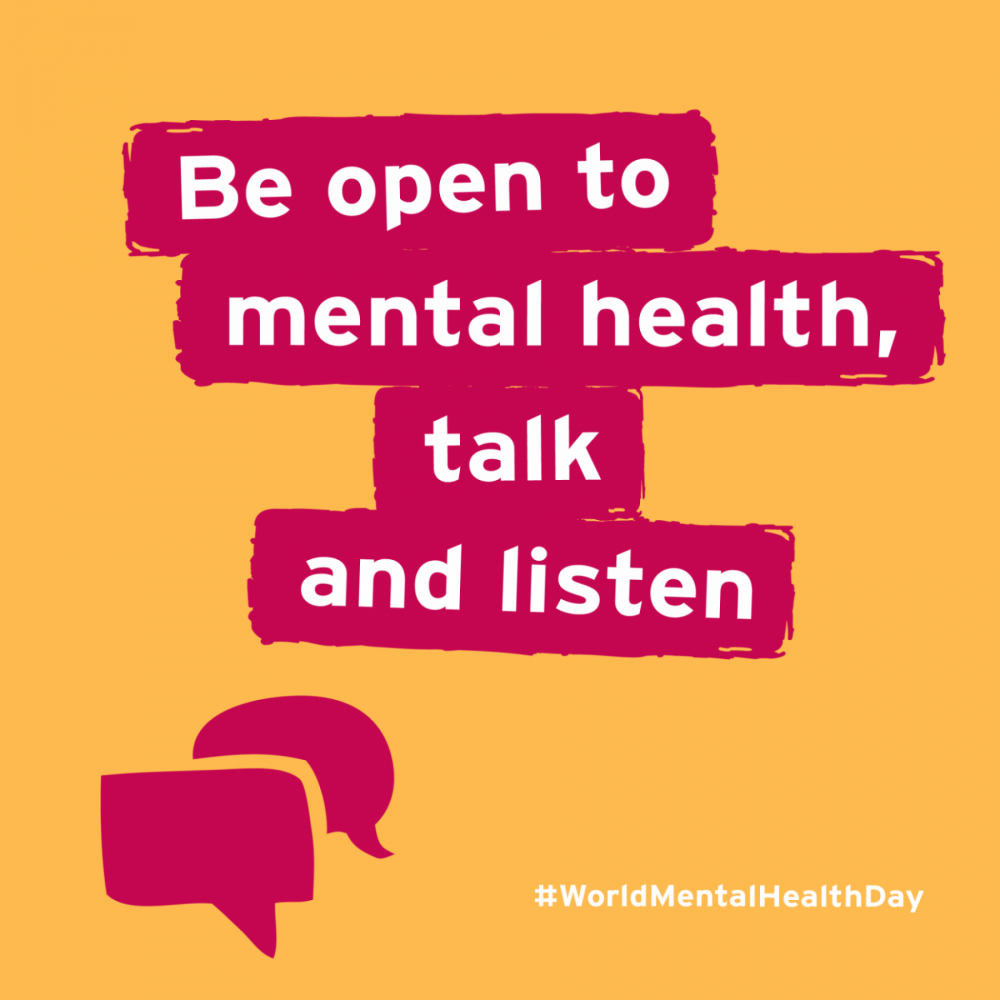World Mental Health Day 10 October 2020
This falls on 10 October and it presents a great opportunity to address the elephant in the room that is Mental Health.
It’s a really important topic and even more so right now when so many of us are either struggling ourselves or watching others that we care about struggle- we may feel like we can’t help ourselves or those around us.
A place where mental health issues will be really visible right now is back at work and you may have seen people finding it hard to cope or them not behaving/ feeling like their usual selves.
Given isolation and Lockdown this Spring through to Autumn, and it’s continuation, there haven’t been the usual relationships in place- having a natter on your breaks or meeting up after work etc. and that downtime is really useful because we can vent, gain a new perspective and also calm down. Without that daily or weekly banter, then for some people, they are losing their lifeline; their support network and their friends.
If you’re a manager or supervisor or simply wanting to support any level of colleague or friend then here are a few things you can do in the workplace (and elsewhere) if social distancing will allow it. If not, there are still video calls, emails, Skype, Zoom etc. there are ways to keep in touch that still provide support. Any support is better than no support.
- Find a quiet place to talk and keep it informal.
- Actively listen to the person; reserve judgement even if you think you have the answers and can save them- chances are they just want to be heard- not everyone needs a solution.
- Leave any questions or comments until the end; don’t interrupt them. You may be the first person willing to listen to them so make sure that if you offer it that you’re willing to see it through.
- Stay engaged, look interested and use phrases that encourage them to expand on their experience such as, ‘what happened next?’ This shows you are paying attention to them.
- If you don’t understand them, then seek clarity; checking out the information also shows you want to know their story and their truth.
- Avoid clichés. Whatever your stance on mental health and how people cope with it please reserve judgement (I can’t stress this enough!) ‘Pull yourself together’ or ‘You’re just having a bad day’ are really insensitive and they may only be sharing a small portion of what they have been through- using a cliché or imposing a stereotype will only serve to undermine everything you were hoping to achieve with them.
Active listening can really help a person feel validated and worthy of being heard. It can change a person’s day simply by being offered space to talk. It’s difficult to ask for help and people are often afraid of being a burden to those around them so offering space to listen to them can encourage them to speak out again and in the future. The more people are heard then the less likely their mental health will spiral if they feel they have a support network to turn to when things are difficult.
It’s important to know your limitations in supporting any person with suspected mental health concerns. If what you hear causes alarm bells to ring or you feel they could benefit from professional support then it is ok to provide helpline numbers and suggest they speak to their GP for additional help and to look at their options for additional support.

Add Comment